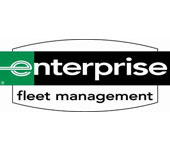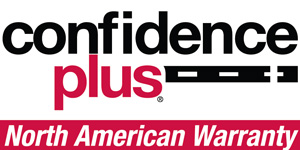Know Your Towing Limits in Louisville
Posted January 21, 2024 7:13 AMSome Louisville drivers figure that anything they can attach to their trailer hitch can be towed by their vehicle. Nope. If you're going to do any towing around Louisville, you should be aware of safety issues, KY towing laws and potential liability.
Understanding tow ratings is important for safe towing. A tow rating is the weight limit that your vehicle can safely tow. They calculate the tow rating for every vehicle, but different options on the vehicle can affect that rating. Louisville drivers need to read the towing section in their owner's manual to get the specific tow rating for the vehicle they own.
Your trailer hitch also has a weight limit, and it may not match the tow rating for your vehicle. Your vehicle may be rated for 10,000 pounds (4,500 kg), but if you have a 2,000-pound (900 kg) hitch limit, you shouldn't be towing more than 2,000 pounds (900 kg). If you tow a 10,000-pound (4,500 kg) trailer on that hitch, it could break free and you would be liable for any resulting damages.
Another example, one popular pick-up truck has a tow rating of 10,300 pounds (4,600kg). But in the owner's manual, it specifies that a sway control device be used for trailers weighing over 2,000 pounds (900 kg) and that a weight-distributing hitch is required for trailers over 5,000 pounds (2,300 kg). If the vehicle owner tows a 6,000-pound (2700 kg) trailer without a weight-distributing hitch and ends up in an accident, the owner will be held liable for not complying with the towing requirements in KY.
Louisville auto owners also need to keep in mind that tow weights include the weight of passengers and cargo inside the tow vehicle. So if your tow rating is 7,000 pounds (3,200 kg), and you're carrying 700 pounds (320 kg) of passengers and cargo, you can only tow a trailer weighing up to 6,300 pounds (2,880 kg).
Two numbers that Louisville drivers should be aware of are the GVWR and the GCWR. These codes are usually imprinted on the inside of the driver's side door. GVWR stands for gross vehicle weight rating. Take GVWR and subtract the total weight of the vehicle, and you have the maximum weight the vehicle can safely carry in passengers and cargo. GCWR stands for Gross Combined Weight Rating. Take that number, subtract the weight of the tow vehicle and the trailer, and you have the maximum weight of passengers and cargo that the tow vehicle and trailer together can safely carry.
This may seem a bit complicated, but you ignore these ratings at your own peril. If you haul or tow loads over the maximum ratings around KY, you become liable in event of an accident.
Local Louisville laws require that safety chains be attached when towing a trailer. Some KY jurisdictions may require trailer brakes as well. Others mandate trailer brakes only in certain situations. If you are going to tow a trailer, you should find out the local Louisville laws regarding trailer brakes and hitches, as well as weight and length restrictions.
To tow safely, KY drivers also need the proper tires on the tow vehicle. Tires need to be in good condition with adequate tread, and they need to have a load rating high enough to handle the weight of the trailer. Your trained American Brake Centers Inc. tire professional can help you select the right tire to use when towing around Louisville.
Your 's owner's manual is your primary source for auto advice regarding towing since it is specific to your vehicle. Be sure to read it carefully before doing any towing. And as always, keep your preventive maintenance up-to-date, and practice good car care to ensure the safety of your vehicle on the road—especially when pulling a trailer.
American Brake Centers Inc.
3435 Bashford Ave Ct.
Louisville, KY 40218
502-459-0355
http://www.americanbrakecenters.biz
Regular Schedule or Severe Service Schedule at American Brake Centers Inc.?
Posted January 7, 2024 1:17 AM
Today's American Brake Centers Inc. article focuses on severe service maintenance. Many Louisville drivers are not aware of them and yet there are also very vocal advocates in KY who think that severe service schedules apply to everyone. Somewhere between a complete lack of awareness and the dire blanket statements lies a reasonable approach to severe service maintenance at American Brake Centers Inc..
To back up a little, vehicle owner's manuals have schedules for preventive maintenance: things like oil changes, transmission service and so on. They say you should change your oil after a certain distanced traveled or after so many months. Louisville drivers understand this very well. What they may not know is that there are actually two service schedules: the regular schedule and the severe service schedule. The mileage and time intervals are lower on the severe service schedule.
Now when you hear 'severe service,' you may think it doesn't apply to you because you don't feel your driving conditions are severe or extreme – it's just normal everyday driving in the Louisville area. So let's list some of the conditions that classify as severe so that you can make the judgment on your own driving.
Before we start the list, here's a point of contrast that definitely is not severe driving. Driving down your nearest KY interstate at the highway speed limit on a 75 degree F/24 degree C day loaded only with your passengers. This is an easy trip for your vehicle: your engine is loafing along at low RPMs, no heavy loads to pull and moderate Louisville temperatures. Now let's look at some severe service driving conditions.
Most trips around Louisville are less than four miles/six and a half kilometers. When your vehicle engine cools down, moisture condenses in the engine. This water in the oil doesn't get a chance to evaporate on short trips because the oil doesn't get hot enough. A lot of short trips in your vehicle means a lot of water build up. And water in the oil leads to the creation of sludge which can damage the engine. Changing the oil more frequently keeps sludge from building up. By contrast, highway driving warms the engine up and gets the water burned off.
Here's another example. Most trips around Louisville are less than 10 miles/16 km and outside temperatures are below freezing. This is the same reasoning, but in very cold KY weather it takes even longer for the oil to get hot enough to evaporate the water, hence 10 miles/16 km as opposed to 4 miles/6.4 km.
Next, you drive in very hot KY weather. The hotter it is outside, the more cooling the engine, transmission, brake fluid and so on becomes. The environment in which the fluids reside is more hostile, and the fluids simply break down faster. Therefore, the lower change interval.
Another: driving at low speed most of the time. Every vehicle engine has what's called its power band. This is a range of RPMs in which it's most efficient. Low speed driving doesn't keep the engine in its power band so it's working harder. This is one of the reasons that ratings are worse in downtown than on the highway.
Stop and go driving in Louisville is another severe service condition. You're always accelerating, which works the vehicle engine and transmission harder. Then you're stopping, which works the brake fluid harder, causing it to get very hot. Highway driving, on the other hand, requires far less horsepower to maintain its speed than getting a stationary vehicle from a stop light up to 25 mph/40 kph. A lot of this and you'll need to follow the severe service schedule.
Also on the list is operating your vehicle in dusty, polluted or muddy conditions. Obviously, your engine air filter and cabin air will get dirty faster and need to be changed more frequently as will your breather element. Some of this dust and dirt will make its way into your fluids. They will simple get dirty faster and won't protect the components as well as fresh fluids.
Finally, you're driving under severe conditions in Louisville when you tow a trailer, regularly carry heavy loads or carry a car-top carrier. This is pretty obvious. You'll spend more time in lower gears so the engine and transmission work much harder and create more heat. Brakes will be more stressed stopping the heavier loads.
Sounds like most of us in Louisville operate under severe driving conditions at least some of the time. How can Louisville drivers know which schedule to follow?
Think of it as a spectrum with "always driving under severe conditions" on one end and "never driving under severe conditions" on the other end. Some will be at one extreme or the other, but most of us will fall somewhere in between.
Carefully think about your driving conditions and decide if you should do your preventive maintenance closer to the severe service recommendation or the regular recommendation. Of course, your American Brake Centers Inc. service advisor can help you with your decision.
American Brake Centers Inc.
3435 Bashford Ave Ct.
Louisville, KY 40218
502-459-0355
http://www.americanbrakecenters.biz
Light Up your Life (Headlamp Replacement)
Posted January 1, 2024 10:52 AMDid you know that having a burned out headlight can result in your rearview mirror reflecting some flashing lights? In other words, you might get pulled over by the police for only having one working headlight, because in most places it's against the law.
Not only is it illegal to drive with one headlight burned out, but it's also dangerous. You can't see down the road nearly as well at night with only one headlight, and other drivers can't see you as easily either.
The good news is many newer vehicles warn you when one of your headlamps burns out. When that happens, have it taken care of as soon as you can. While there was a time when all headlamps were pretty much the same, the same isn't true these days. There are halogen, Xenon, LED and other technologies used in modern vehicles. Plus there are sealed beams (like those on older vehicles) and capsules.
If you have a burned out headlamp, ask your service advisor for recommendations. Usually when one side goes, the other isn’t far behind. Many suggest replacing both headlamps at the same time. Your vehicle's owner's manual can tell you what the manufacturer recommends. You also can ask your service advisor about upgrading to a headlight that might give you better visibility.
In order to make sure you're able to see down the road the way your vehicle was designed and not blind oncoming drivers, it's vital that new headlights be aimed properly. That's another good reason to have this service performed by a technician. Now, that's a really bright idea.
American Brake Centers Inc.
3435 Bashford Ave Ct.
Louisville, KY 40218
502-459-0355
http://www.americanbrakecenters.biz











